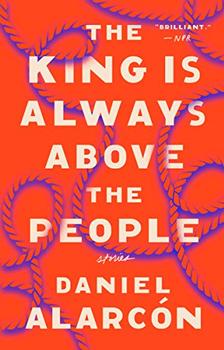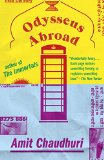Summary | Excerpt | Reading Guide | Reviews | Beyond the book | Read-Alikes | Genres & Themes | Author Bio

Asunder is a rich, resonant novel of beguiling depths and beautiful strangeness, exploring the delicate balance between creation and destruction, control and surrender.
Marie's job as a guard at the National Gallery in London offers her the life she always wanted, one of invisibility and quiet contemplation. But amid the hushed corridors of the Gallery surge currents of history and violence, paintings whose power belies their own fragility. There also lingers the legacy of her great-grandfather Ted, the museum guard who slipped and fell moments before reaching the suffragette Mary Richardson as she took a blade to one of the gallery's masterpieces on the eve of the First World War.
After nine years there, Marie begins to feel the tug of restlessness. A decisive change comes in the form of a winter trip to Paris, where, with the arrival of an uninvited guest and an unexpected encounter, her carefully contained world is torn open.
Asunder is a rich, resonant novel of beguiling depths and beautiful strangeness, exploring the delicate balance between creation and destruction, control and surrender.
It is to Chloe Aridjis' enormous credit that she makes the daily machinations of a museum guard riveting reading. Marie’s days might be outwardly repetitive and even boring but the reader sees her mind working in inventive and interesting ways...As Marie tries to make peace with her internal struggles, there’s a tightly wound energy that’s apparent on every wonderful page, just waiting to leap up and hold the reader in its welcome embrace...continued
Full Review
(789 words)
This review is available to non-members for a limited time. For full access,
become a member today.
(Reviewed by Poornima Apte).
As Chloe Aridjis explains in Asunder, a painting too must obey the laws of physics - in that it slowly - ever so slowly - descends from "order" (the finished painting) into disorder. This "disorder" is brought about by a series of cracks in the paint or varnish that forms a network over time. This network is called craquelure (pronounced crack-lure). The cracks are formed as result of drying forces, responses to humidity and a number of other environmental factors. As time goes on, paint dries and undergoes shrinkage which, in turn, creates cracks. The pressure on these paintings is higher at the edges than it is in the center, which means cracks are more pronounced at the edges of a painting. Even the human touch can set off a series of ...
This "beyond the book" feature is available to non-members for a limited time. Join today for full access.

If you liked Asunder, try these:

The King Is Always Above the People
by Daniel Alarcon
Published 2018
A slyly political collection of stories about immigration, broken dreams, Los Angeles gang members, Latin American families, and other tales of high stakes journeys, from the award-winning author of War by Candlelight and At Night We Walk in Circles.

by Amit Chaudhuri
Published 2016
A beguiling new novel, at once wistful and ribald, about a day in the life of two Indian men in London, each coping in his own way with alienation, solitariness, and the very art of living.
These are not books, lumps of lifeless paper, but minds alive on the shelves
Click Here to find out who said this, as well as discovering other famous literary quotes!